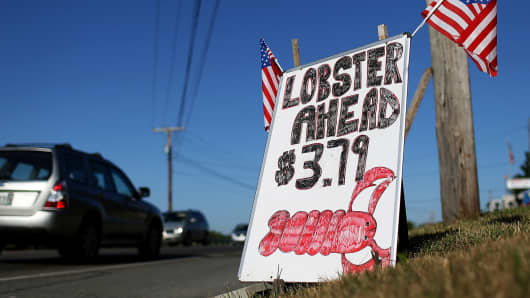Last month north of Bangor, workers in Old Town, Maine began demolishing the Penobscot River’s Great Works Dam. The dam removal is part of a larger project to improve fish access along the nearly 1,000 miles of historic fish habitat, and support nearly a dozen species of fish, including Atlantic salmon. The entire project, to be phased in over several years, will also help maintain existing hydropower production and create hundreds of jobs spanning fishing, energy production, water sports and recreation.
Supporters of the restored Penobscot River project include a varied group of small-business owners — salmon anglers, fishing guides and outdoor recreational companies. They're hopeful the restored river will support the regional economy, which includes fishing, paddling, canoeing and other kinds of outdoor tourism.
“People book campsites, hotel rooms. They’ve got to eat and buy food and gas,” says Scott Phillips of Northeast Outdoor Sports, a sales representative based in Old Town. “It does have a ripple effect.”
Phillips has been in the outdoor recreation business for more than 20 years and remembers when fishermen came for salmon. “We want to see the river come back to its natural state,” he says.“Right now the river isn’t being used to its potential.”
The dams have prevented fish from swimming upstream to native habitats, subsequently reducing biodiversity over the years. Removing dams will restore the free flow of fish. “The river will become healthier because more fish and nutrients float through,” says Karen Francoeur, owner of Castine Kayaks. “Nothing is able to go upstream. The only thing you’re going to catch is a sunfish."



